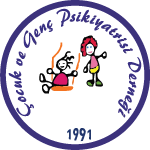ABSTRACT
Objective:
This study aimed to explore children of foreign nationalities admitting to the child psychiatry department of a training and research hospital, including their clinical features and interventions practiced.
Method:
Hospital records and chart fi les of foreign children who had applied to the Child Psychiatry Department of Ankara Child Health and Diseases Hematology Oncology Training and Research Hospital between September 2016 and 2017, were retrospectively evaluated.
Results:
In total, the sample consisted of 283 foreign children with a median age of 7.9 years where 63.3% were male and more than half were Syrian (52.7%). Mean living duration in Turkey was 1.6 years. Child and adolescent psychiatry unit was their index application in the hospital for 34.6%; while 65.4% were refered from other medical branches in the hospital, most frequently child neurology (37.1%). Only 18.4% (n=25) of the sample were involved in any type of educational system while remainining 81.6% (n=231) were not attending school at the time of the study. Of all, 54.1% (n=153) of the cases met the criteria for any psychiatric diagnosis according to DSM- 5 classifi cation, with most frequent being mild intellectual dysfunction (29.7%, n=84). Evaluation with a request to obtain disability report was carried out in 62.5% (n=177) of the cases. Pharmacological treatment was either initiated or continued in 12% (n=34), with primarily recommended agents being antipsychotic drugs (4.9%, n=14).
Discussion:
Cases were mostly school-aged children and it was striking to determine that only one fi fth had been attending school at the time of the study. Approximately one in three index admissions to our hospital was to the child psychiatry department. Most of these applications were consulted by the child neurology department and main motive of application was to be evaluated for an eligibility to obtain disability reports from the health board of the institution.



